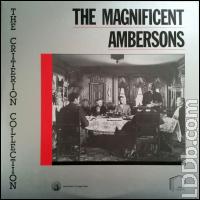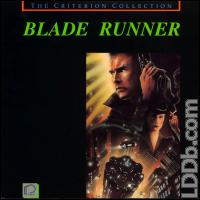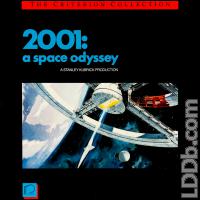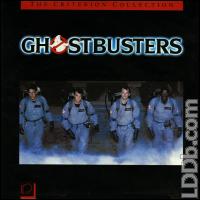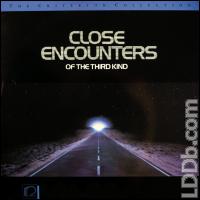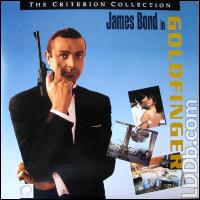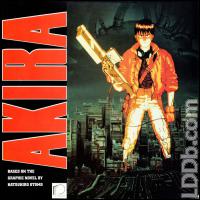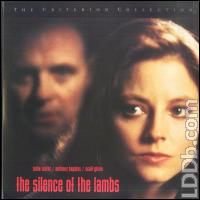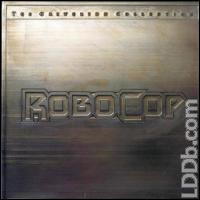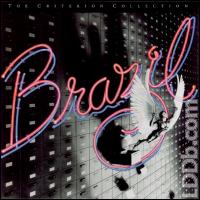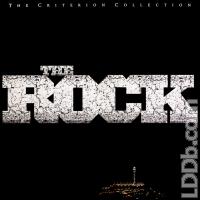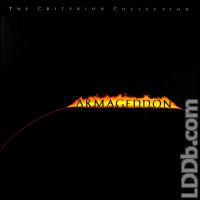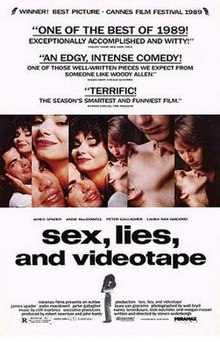1984: Criterion launched their first titles, Citizen Kane and King Kong. Laserdisc contains innovative technology at the time and pioneered the concept of the special editions. Both discs are recorded in a CAV format, which allows you to freeze frame, slow the movie down, speed the movie up and watch the movie backwards. Both discs end with interactive essays about the making of each film, using notes and photos to focus on topics like history and inspiration, screenplays, cinematography, special effects, and initial theatrical release. The King Kong disc features the very first audio commentary ever recorded. The commentary is by the late film professor and preservationist Ronald Haver, who talks about the making of King Kong.
1985: Criterion has issued The Third Man, The 39 Steps, and The Lady Vanishes. All editions are surprisingly bare bones, meaning they have little to no special features.
1986: Orson Welles' 1942 adaptation of The Magnificent Ambersons is an early example of a movie that was victimized by studio interference and this edition contains information on what you missed. It includes an audio commentary from Welles expert Robert Carringer, the original screenplay in it's entirety, interviews with Orson Welles taken before his death, Welles' radio broadcast, and footage from the 1925 silent version of The Magnificent Ambersons. Criterion also released their first letterbox (widescreen) titles, Invasion of the Body Snatchers (1956 version), and Lola Montes. Special editions of Swing Time and High Noon were issued.
1987: Letterboxed editions of Blade Runner, The Graduate, and The Hidden Fortress were released for the very first time and contain their own shares of extras, including art galleries, audio commentaries, still photos, and screen tests. Special editions of A Hard Days Night, A Night at the Opera, Help!, The Seventh Seal and It's a Wonderful Life were also issued and contain extras.
1988: In honor of it's 20th anniversary, Criterion has issued the very first letterboxed edition of Stanley Kubrick's 2001: A Space Odyssey, which contains an interactive retrospective that contains documents, memos, and photos. Special editions of The Wizard of Oz, The Adventures of Robin Hood, Singin' in the Rain, Seven Samurai and North by Northwest were released and contains so many special features. Martin Scorsese has recorded audio commentaries with British director Michael Powell on editions of Black Narcissus, and The Life and Death of Colonel Blimp.
1989: Criterion has released the very first collector's edition of Ghostbusters. The disc includes production photos that showcases the special effects, split screen demonstrations of the special effects, storyboards, deleted scenes, trailers, and the screenplay. Criterion has also issued collector's editions of Casablanca, Forbidden Planet, Lawrence of Arabia, Some Like It Hot, and West Side Story.
1990: Two influential forces in modern film making, Martin Scorsese and Steven Spielberg has contacted Criterion to transfer Taxi Driver, Close Encounters of the Third Kind, and Raging Bull into the Criterion library and adds a huge variety of extras. For Close Encounters, they used the 1977 theatrical cut as the main program and the scenes from the 1980 Special Edition cut as bonus features. You can watch them separately or make your own cut by putting the Special Edition scenes depending on how you program your player. The disc also has an interactive program about the making of the film, which contains interviews, notes, multi audio channels, designs, and production photos that showcases the special effects. Taxi Driver has an audio commentary by Martin Scorsese and writer Paul Schrader, an isolated music track, Schrader's original script in it's entirety, storyboards, production and publicity stills, and an essay about Bernard Hermann's music. Raging Bull contains an audio commentary by Scorsese and editor Thelma Schoonmaker, rare boxing footage of the real Jake La Motta and interviews with him, storyboards and script pages, production and publicity photos, clips of movies that inspired Raging Bull and clips of Siskel and Ebert embracing the movie. Special editions of Notorious, Rebecca, and Sex, Lies, and Videotape were issued.
1991: Criterion has issued the first 3 James Bond films featuring Sean Connery and the contain a variety of bonus content. They include audio commentaries, production and publicity stills, trailers and TV commercials, and isolated music and effects track. Special editions of Silverado, The Last Picture Show, Carrie, Midnight Cowboy and The Great Escape were released.
1992: Criterion has released it's very first animated title and the only animated title on Laserdisc. Criterion would later do DVD and Blu Ray editions of Fantastic Mr Fox and Watership Down. This edition of Akira includes a bilingual audio track that allows you to choose between Japanese and English, production drawings and animation cels, behind the scenes footage, pages of the manga, trailers, and more. Criterion has also issued the 50th Anniversary edition of Citizen Kane. Not only it contains the special features from 1984, it also contains an interactive documentary which utilizes the multi-channel audio track to watch and listen to directors, producers, and actors talking about Citizen Kane. The interviews are in 3 small windows and you press the audio button on your remote to hear another person talk. Special editions of Boyz N the Hood, The Adventures of Baron Munchausen, Dr Strangelove, Tootsie, Jason and the Argonauts, and Spartacus were released and were jam packed with extras.
1993: Criterion has released an interactive edition of Francis Ford Coppola's Bram Stoker's Dracula. It contains an audio commentary by Coppola and his collaborators, and isolated music and effects track, storyboards, behind the scenes footage, a history lesson on the Dracula legend, and an interactive editing workshop that allows the viewer to edit certain scenes from the film and make their own cuts. Criterion has also issued editions of Monty Python and The Holy Grail, The Player, and other titles.
1994: Criterion has released it's very first THX title, The Silence of the Lambs. The special features include an audio commentary from Director Jonathon Demme and his collaborators, deleted scenes, production stills, storyboards, filmographies and career overviews, and research on serial killers from the FBI. Criterion has also issued a collector's edition on John Carpenter's 1978 horror masterpiece, Halloween. It contains an audio commentary from John Carpenter and his collaborators, an isolated music and effects track, a history lesson on the slasher genre, production and publicity stills, notes on the film's history, and a 1980 clip of Siskel and Ebert praising Halloween while bashing other slasher films. Editions of This is Spinal Tap, Menace II Society, and other titles were released.
1995: The company released a collector's edition of RoboCop, which contains an audio commentary from Director Paul Verhoeven and his collaborators, THX certified picture and sound quality, footage that was cut from the film to avoid and X rating, storyboard to film comparison, and production and publicity stills. An edition of Do The Right Thing contains audio commentary, a one hour documentary about the making of the film, rare outtake footage, production photos, and more. Editions of Sid & Nancy, The Red Shoes, and other titles were issued and contains a lot of supplemental material.
1996: Terry Giliam's 1985 futuristic satire, Brazil has been meddled by Universal Pictures before it was released and Criterion has fixed the film by adding 10 minutes of missing footage. It also includes documentaries, and an interactive archive chronicling the film's troubled production. Criterion has also issued a special collector's edition of Quentin Tarantino's Pulp Fiction. It includes THX certified picture and sound quality, a one hour interview with Tarantino, trailer and TV spots, production and publicity stills, deleted scenes, and a behind the scenes featurette. Editions of Dead Ringers, Dead Presidents, Seven, and other titles were available.
1997: Believe it or not, Michael Bay has contacted Criterion to create a special edition of The Rock, which I didn't mind because that's the only Michael Bay movie I liked so far. The supplemental material includes and audio commentary from Bay and his cast and crew, THX certified picture and sound quality, outtakes, a clip from The Discovery Channel's Movie Magic episode which focuses on the special effects, Bay's "Got Milk?" commercial, and storyboards, production stills, and designs. Other editions like Evita, Monty Python: Life of Brian, The Princess Bride, and Chasing Amy were released (Kevin Smith's Laserdisc commentary infamously opened with him saying "F--- DVD").
1998: Criterion goes to DVD for the first time. Most of Criterion's first titles have been released on Laserdisc in the past, including Robocop, Walkabout, The Seventh Seal, This Is Spinal Tap, Sid & Nancy, and Silence Of The Lambs. Laserdisc releases include The Game, Boogie Nights and more titles.
1999: Of all the movies to end Criterion's supply of Laserdiscs, they had to go with the worst movie to ever get a Criterion release, Armageddon. The bonus features of this pile of crap includes 2 audio commentaries, gag reels, trailer and TV spots, Aerosmith's "I Don't Wanna Miss A Thing" music video, deleted scenes, and special effects tests. Enough of the bonus features, how the hell did Armageddon get a Criterion release? Seriously?
Shortly after Criterion stopped transferring movies to Laserdiscs, they continue to transfer and distribute movies on DVD and Blu Ray and they continue to do so today. Criterion sure helped revolutionize the collector's edition trend for home video. Without Criterion, other home video distributors wouldn't put special features on their movies and Laserdisc, DVD and Blu Ray wouldn't become film school formats. We movie buffs thank God for the Criterion Collection.



